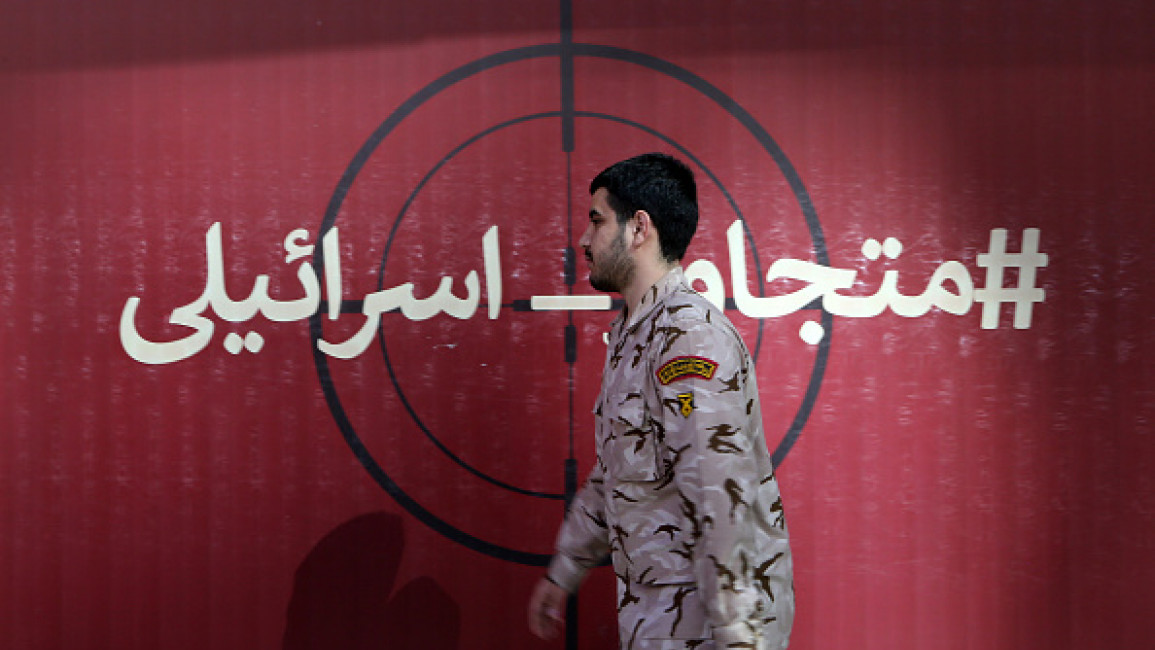In Iran, war-weary citizens call for peace and reject regional war with Israel
As drones and missiles from Iran flew towards their targets in Israel, groups of pro-establishment citizens gathered in major Iranian cities to celebrate the Islamic Revolutionary Guard Corps (IRGC) military response to Israel's air raid on Iran's consulate in Damascus.
However, any citizens, analysts, or journalists who dared to voice even the slightest opposition to the attacks or warned of the risks of an all-out war with Israel were promptly silenced by intelligence organisations and the judiciary.
Just hours after the attack, the IRGC's intelligence service issued a statement threatening harsh responses to any backing for Israel. They also urged their supporters to report individuals who support Israel or oppose the confrontation on Farsi social media.
Meanwhile, Iran's judiciary, led by conservative ayatollahs, summoned well-known analysts, journalists, and commentators who criticised the attack. This pressure from the establishment has led to public censorship, stifling any opposition to the potential war looming over the region.
The New Arab spoke to several Iranians who, to avoid persecution, expressed their opinions and reasons for opposing the war on condition of anonymity.
Under war's shadow
While the recent tit-for-tat attacks traded between Tehran and Tel Aviv have entered a new phase of military confrontation between the two arch-enemies, Iranians interviewed by TNA expressed that living under the shadow of war has become a collective experience for them over the past two decades.
"I was born during the Iran-Iraq war, and since its end, the fear of another war has been constant," said a 44-year-old Iranian, referring to the conflict that claimed over 500,000 lives between 1980 and 1988.
"I was in the second year of primary school when Tehran was hit by missiles day and night. I remember the fear when the sirens went off during school hours, and we, little students, pushed and elbowed each other to fit into a dark and dusty underground shelter. I don't want my daughter to go through the same experience," he added.
The Iran-Iraq war stands as the second most prolonged conventional conflict of the twentieth century, after the Vietnam War. The use of chemical weapons by Iraq made it one of the most brutal wars of the last century, during which the US military also downed an Iranian passenger flight.
Following that war, the animosity between Iran and Western powers persisted, mainly in a cold-war style. Both sides beat war drums loudly but attempted to avoid direct military confrontation. However, on occasions such as the US invasion of Afghanistan in 2001, Iranians found themselves on the brink of another war.
"When [George W.] Bush labelled Iran a member of the 'Axis of Evil,' we lived in daily fear of becoming victims of US military attacks," recalled another Iranian, who was in the first grade of high school at the time.
The term "Axis of Evil" was announced by President Bush after the invasion of Afghanistan and before the attacks on Iraq. Bush named Iraq, Iran, and North Korea as part of the Axis of Evil in a propaganda campaign to gain support for the War on Terror.
"Since then, our lives have been stained with this fear. When Iran arrested American Marines, shot down an American drone, or attacked the Ain al-Asad airbase, that same fear boiled up. Those who haven't experienced it don't understand the impact this fear has on our lives," he added, referring to other limited military confrontations between Iran and the US.
He also expressed his opposition to a potential war with Israel, questioning, "Why can't we, like citizens of other countries, live in peace? Why can't we have a normal life?"
"Not our war"
Iranian dissidents and ordinary citizens who oppose the establishment and the military theocracy governing the country view the latest confrontations as someone else's war, one that could have a devastating impact on their lives.
A housewife from Tehran expressed it succinctly: "This is not our war. The dictators want to flex their power to their rivals, and we are the ones who would pay the price. We are the ones who would be killed if a war breaks out."
This sentiment is highlighted by social scientists as a vulnerability for the Iranian establishment if it becomes embroiled in an all-out war with other countries in the region or with world powers.
Decades of social uprisings, brutally suppressed, alongside worsening economic crises and widespread corruption among officials, have significantly eroded national unity and trust in the establishment.
"The next war would not resemble the Iran-Iraq war, where all Iranians supported the establishment in defending their territories," remarked a sociology professor at Iran's Azad University to TNA.
"At the onset of the Iran-Iraq war, nationalists and even leftists volunteered at the frontline and perished fighting against an army that had initiated the conflict. Now, regardless of who instigates a war, the establishment can no longer rally the people and send them to the front lines," he concluded.



